Trends
Design Discoveries: Materials and Furniture
Wiktoria Sniezek
20/08/24
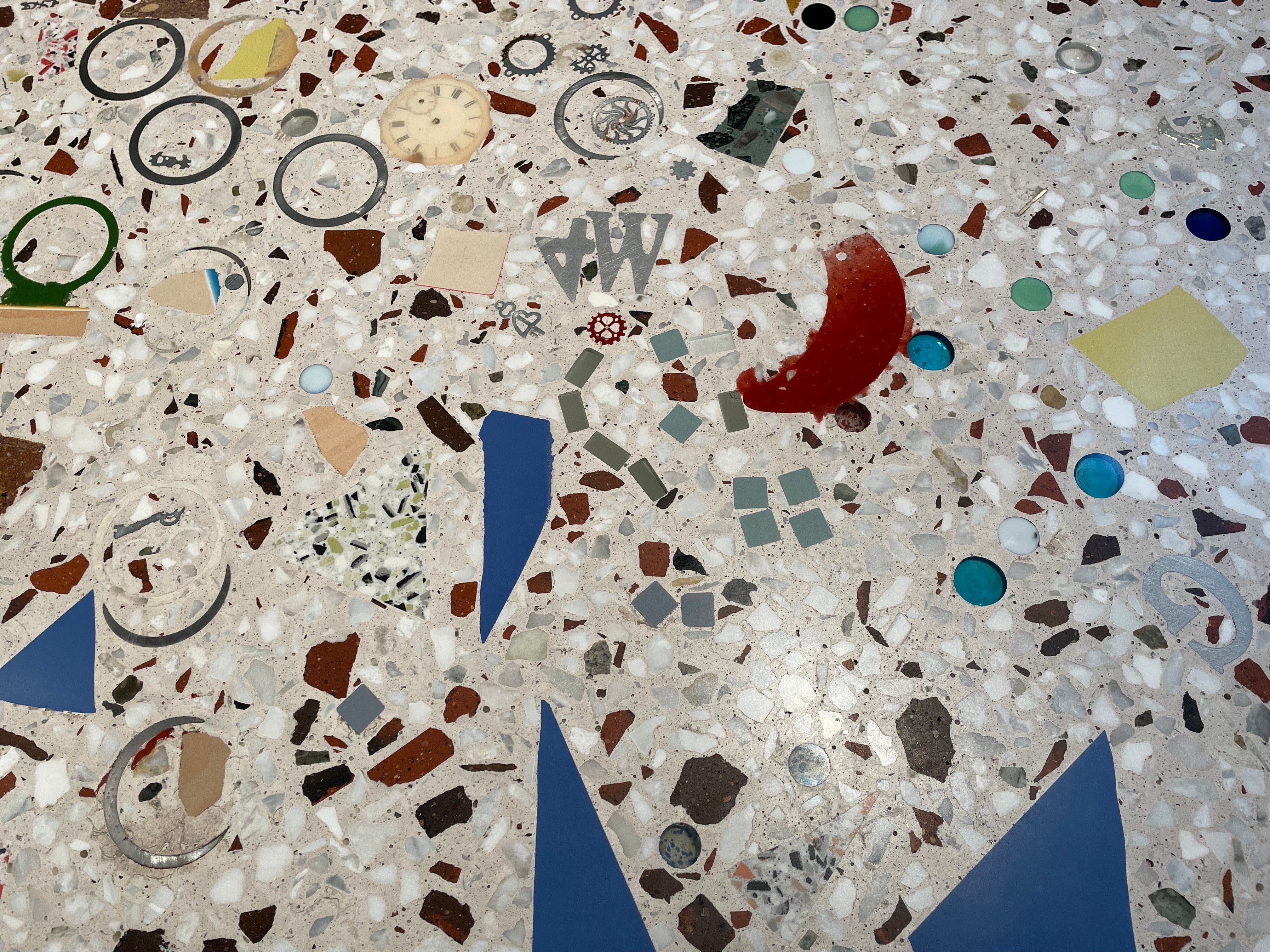
As interior designers we’re always seeking innovations that blend style with eco-consciousness in both materials and furniture. Manufacturers and makers are continually pushing boundaries and unveiling new solutions, to elevate the design industry methods and bring sustainability into our every day process.
To gain inspiration into the latest trends, The One Off’s retail design team recently took a research trip to Manchester’s Design District. Visiting Material Source studio, an inspirational hub showcasing the latest offerings from the world’s leading commercial interior and building supply brands. Along with supplier showrooms and retail stores showcasing material innovations.
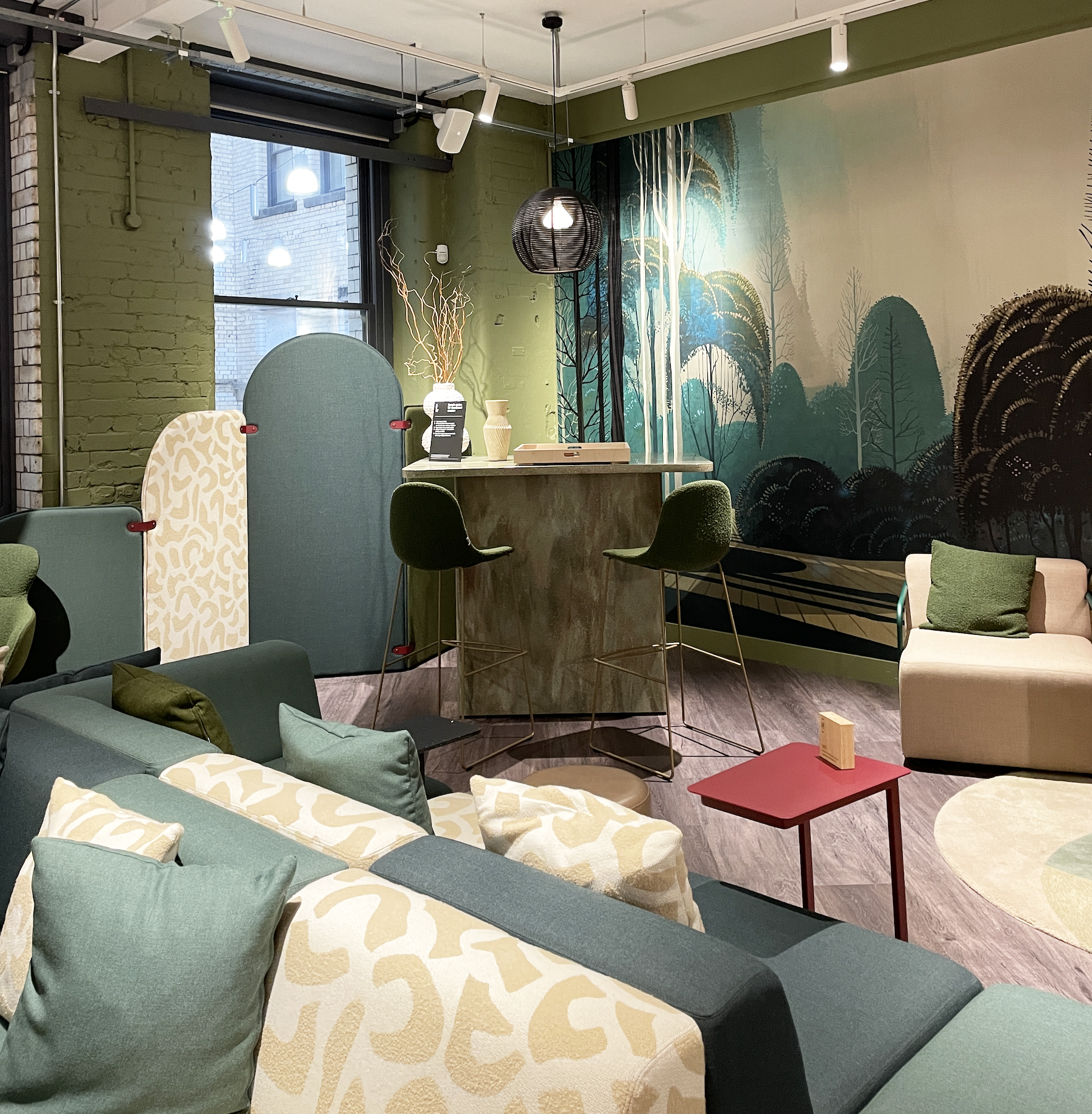
With the rise of ethical consumerism, sustainable design is essential in retail. To create spaces that reflect these values it’s crucial we are well informed when selecting materials, with consideration of material makeup, durability down to production location. These considerations ensure all decisions meet aesthetic and functional needs as well as behaving better in our mass production and retail fixture development to future-proof.
In other sectors, such as workspace there is a demand for flexibility and adaptability that can evolve with user’s needs. To achieve this level of flexibility, we are increasingly turning to modular furniture solutions, instead of fixed items. These pieces can be easily reconfigured, allowing a single space to serve multiple purposes.
With a focus on the above points in sustainability and modularity, here are our top discoveries and inspirations:
Solus – Spolia Collection

We visited the Solus showroom on the launch day of Spolia in Manchester. The tile collection which transforms waste into beauty, with beautiful and unique samples displayed instantly catching our attention.
Spolia is an innovative terrazzo collection that transforms construction waste from demolition sites across the UK, into sustainable, durable surfacing solutions incorporating up-cycled aggregate. The collection offers standard colour options, along with offering a bespoke service to create one-of-a-kind terrazzo tile creations, with exceptional durability and a long lifespan.
Adding to its sustainability credentials, the collection is manufactured in the UK reducing transportation emissions when specifying on local projects.
Spacestor – Verandas
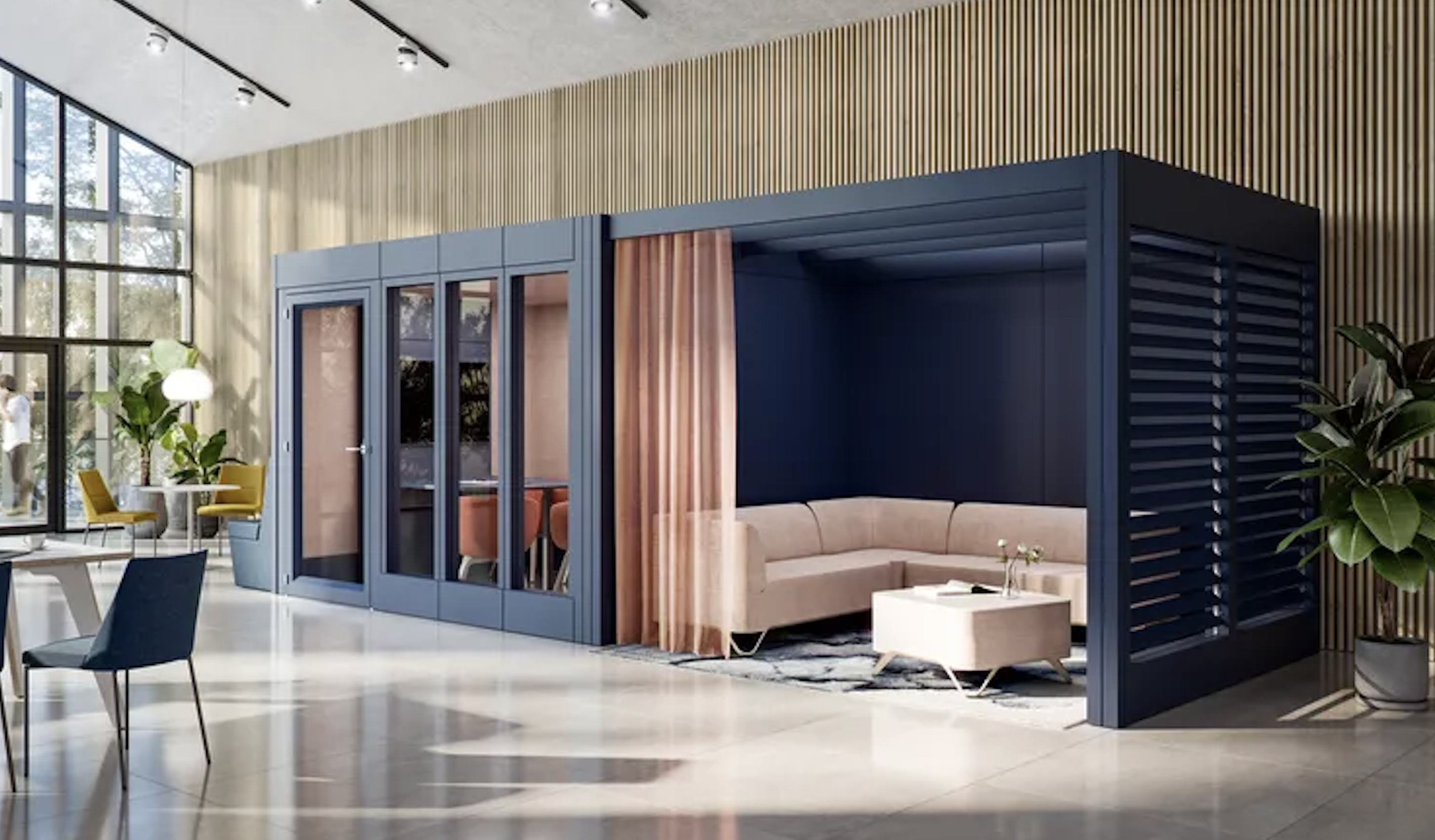
Spacestor specialise in workspace solutions, with products that focus on modular and flexible furniture that can adapt to the ever-changing needs of modern offices. A highlight collection for us was Verandas.
Verandas is an adaptable and modular system, that reimagines the traditional meeting room, incorporating various accessories and custom elements. The spaces created are premium, comfortable and include all features that permanent rooms have, but thanks to its adaptable base framework, the components can be reconfigured to create completely different configurations when the space requires it, really emphasising its long lifespan and sustainable credentials, with Spacestor calling it ‘the meeting rooms you never throw away’.
Material Source – Bio & by-product materials
Material Source presented a curated display of 24 innovative bio & by-product-based materials developments. Not all the materials are market ready, but in highlighting their possibilities, Material Source hopes that ‘they will go on to be manufactured and secure the EPDs and certifications needed for specification, to help support a brighter future’. As stated on the material source website.
A couple of our favourite materials that are on our radar are:
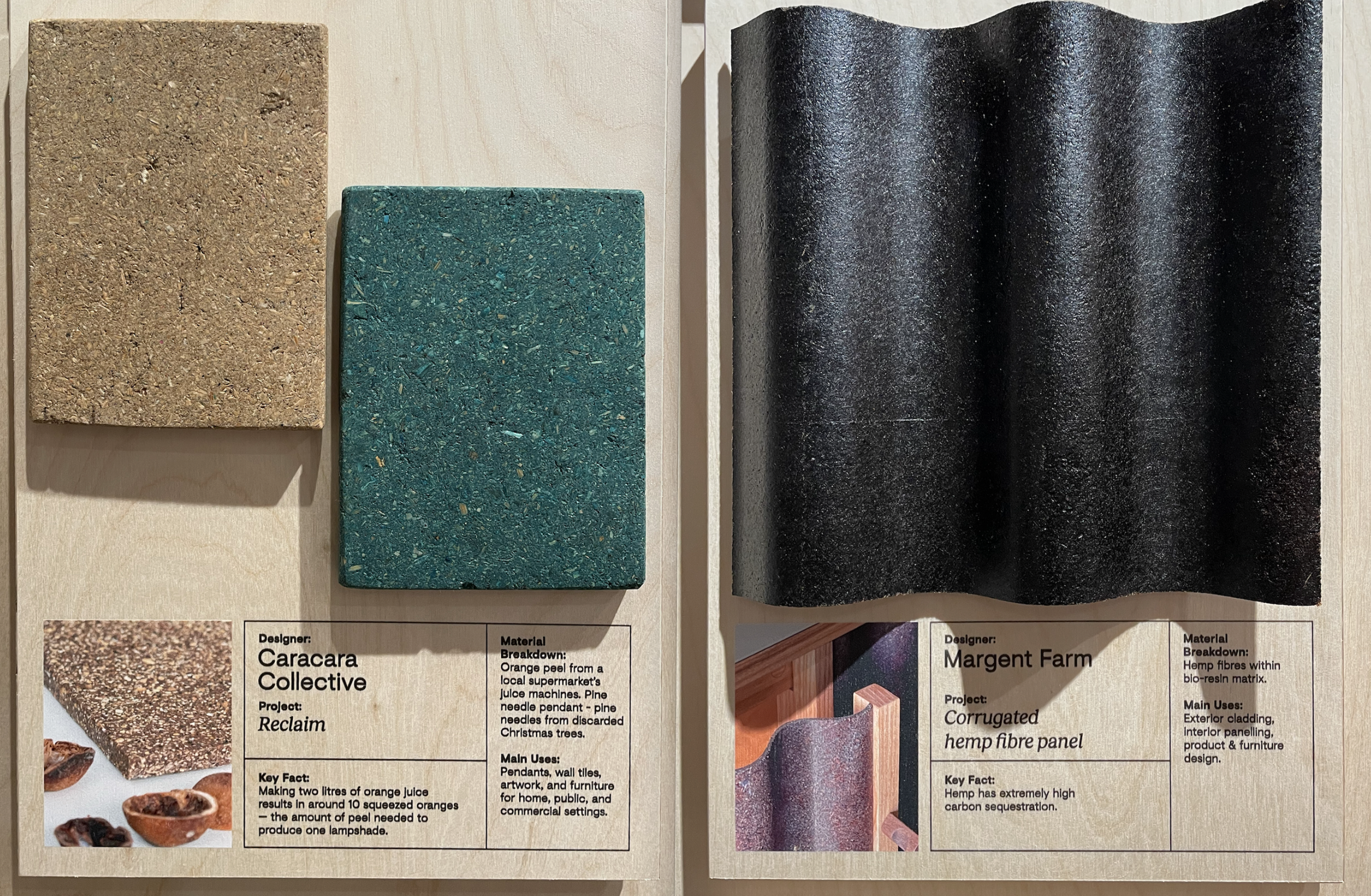
Corrugated hemp fibre panel by Margent Farm
A sustainable building material made from natural hemp fibres combined bio-waste resin made entirely from agricultural waste, resulting in lightweight yet durable sheets ideal for exterior cladding, interiors and furniture design. These sheets offer significant environmental benefits due to hemp’s rapid growth and low need for pesticides. Additionally, their natural, textured appearance makes them a visually appealing choice for eco-friendly designs.
Reclaim by Caracara Collective
The Caracara Collective are an experimental design studio focused on creating sustainable products using bio waste.
The reclaim collection includes beautiful lampshades made from orange peel and pine needle by-products. Both the juice and Christmas tree industry produce a huge amount of by-product, here’s where Reclaim come in, creating 1 lampshade out of 20 squeezed oranges and 12 lampshades from the needles dropped by just 1 tree.
Link to see the rest of the materials:
https://www.materialsource.co.uk/24-bio-and-by-product-based-materials-for-2024/
Additionally, we visited a handful of retail stores, and these were our top pick highlights which we feel are doing amazing work in terms of conscious material specifications:
Nike Rise Store in Manchester Arndale
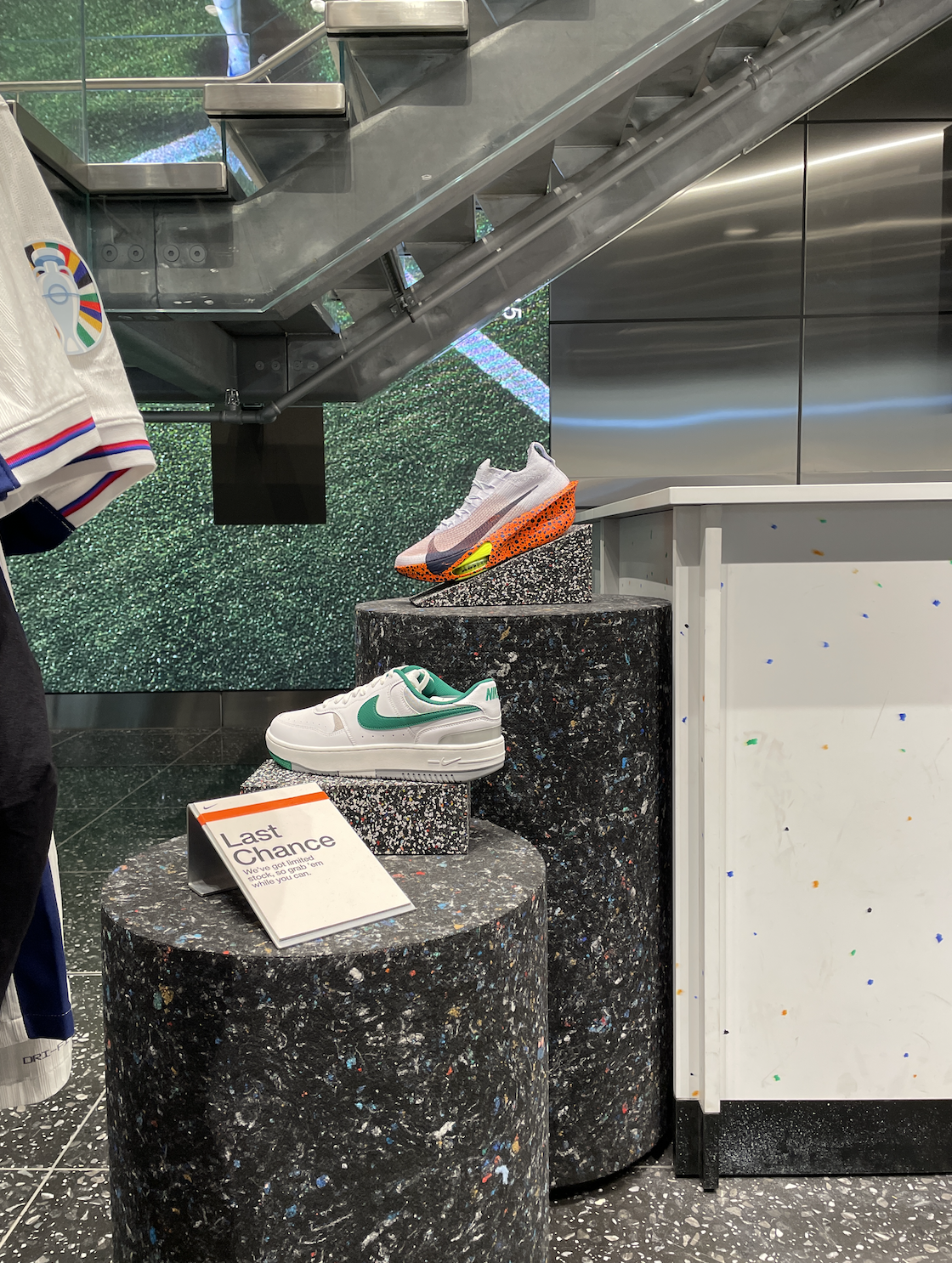
The store design clearly emphasises sustainability, featuring eco-friendly materials throughout the fixture system and store fittings, such as recycled plastics, fabrics, and felts. The textures in the store design palette were noticeable on the cash desks and midfloor tables, varying in colours between men’s and women’s which was a nice navigational touch when browsing. Across Nike’s fleet of stores, Manchester’s showcases another bright and open modern space, emphasising Nike’s commitment to reducing environmental impact and celebrating the brand move to zero mission.
Patagonia
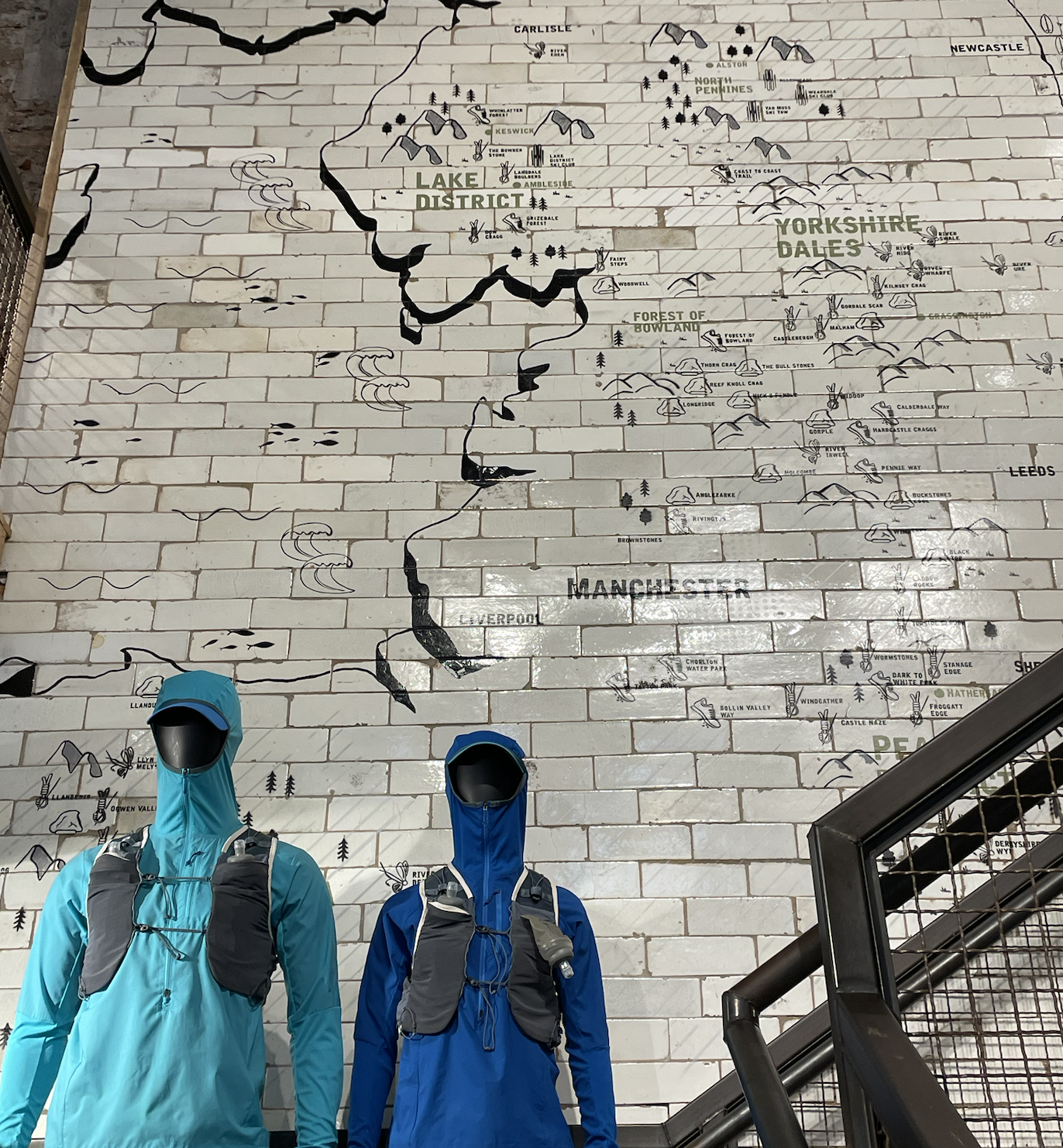
Instead of utilising materials that are made from only recycled content, Patagonia takes the reclaimed route of sourcing and upcycling materials into this store design. The look & feel appears honest and quite industrial, ’true to the Patagonia spirt’. Using glazed brick tiles recycled from a local police station, scaffold boards from building sites around Manchester and light fittings reclaimed from factories local to the store as just an example.


